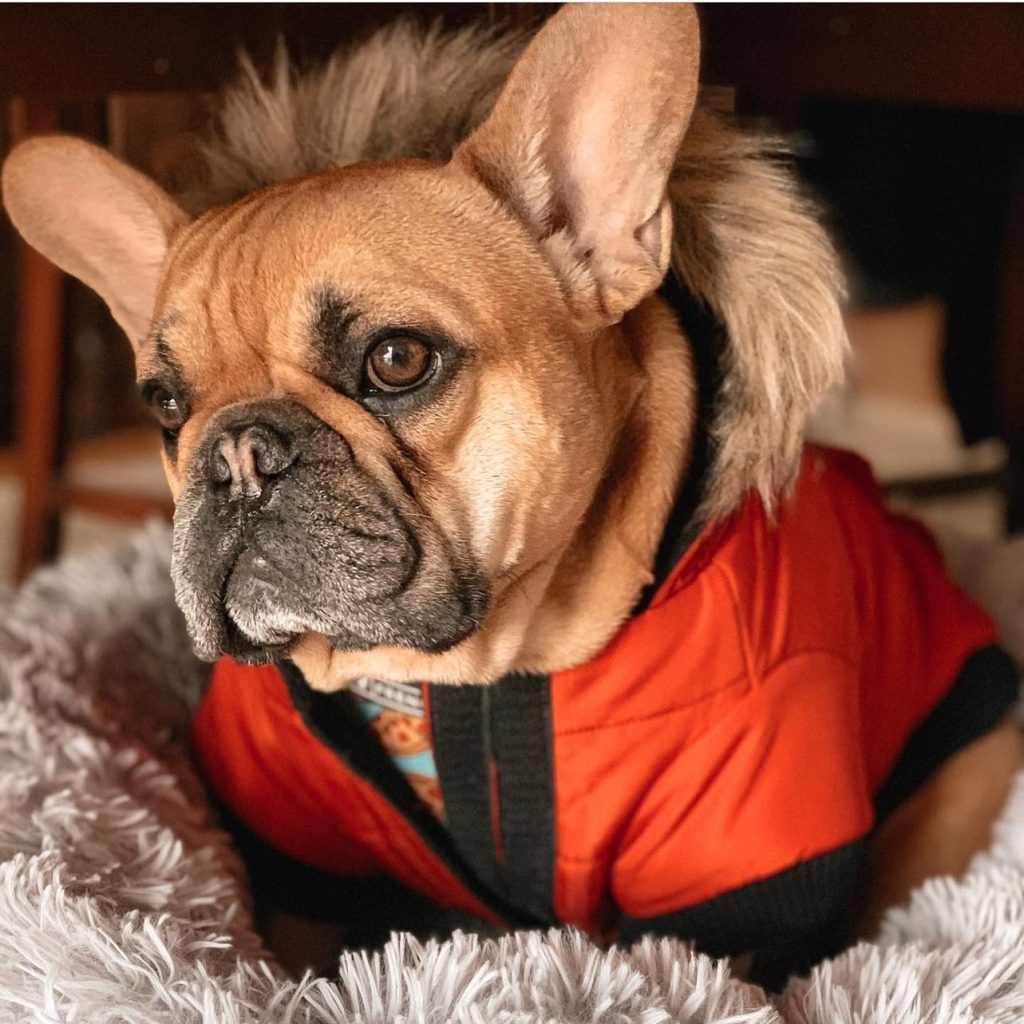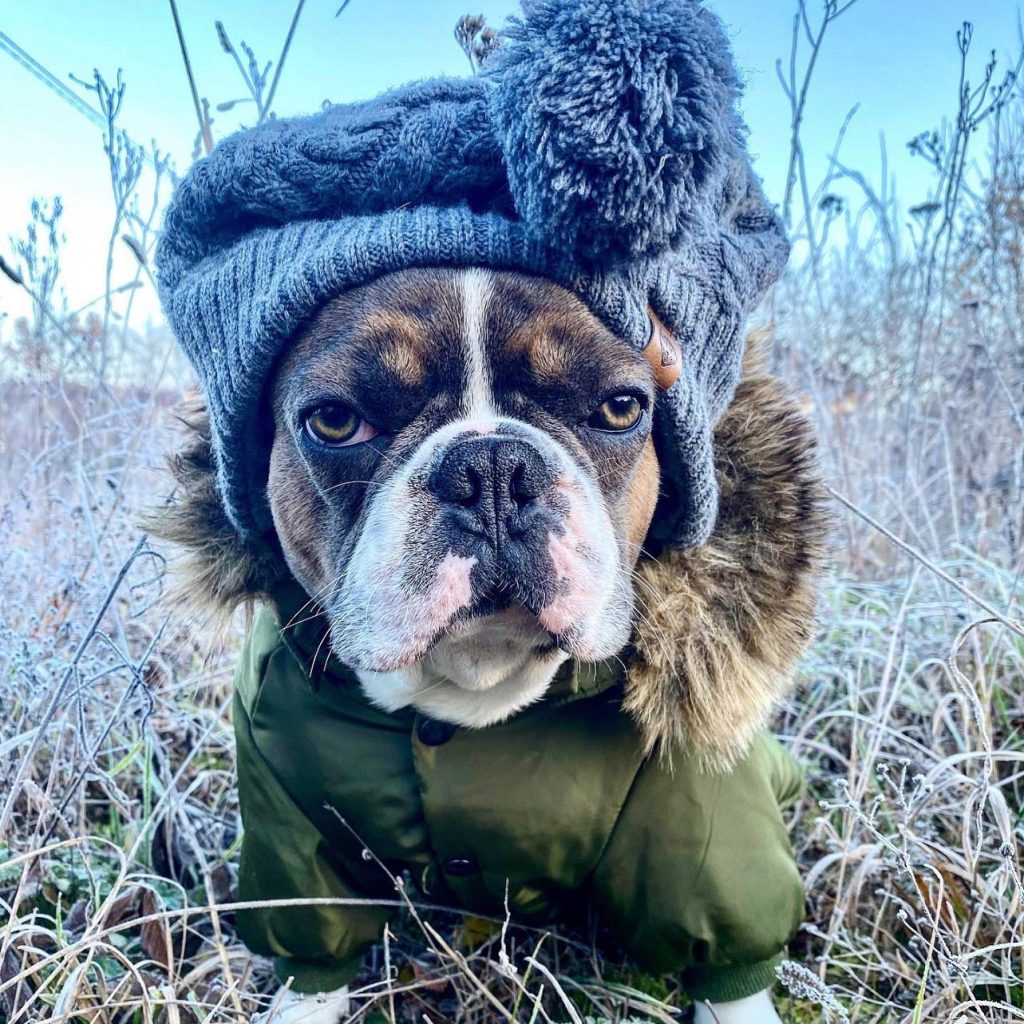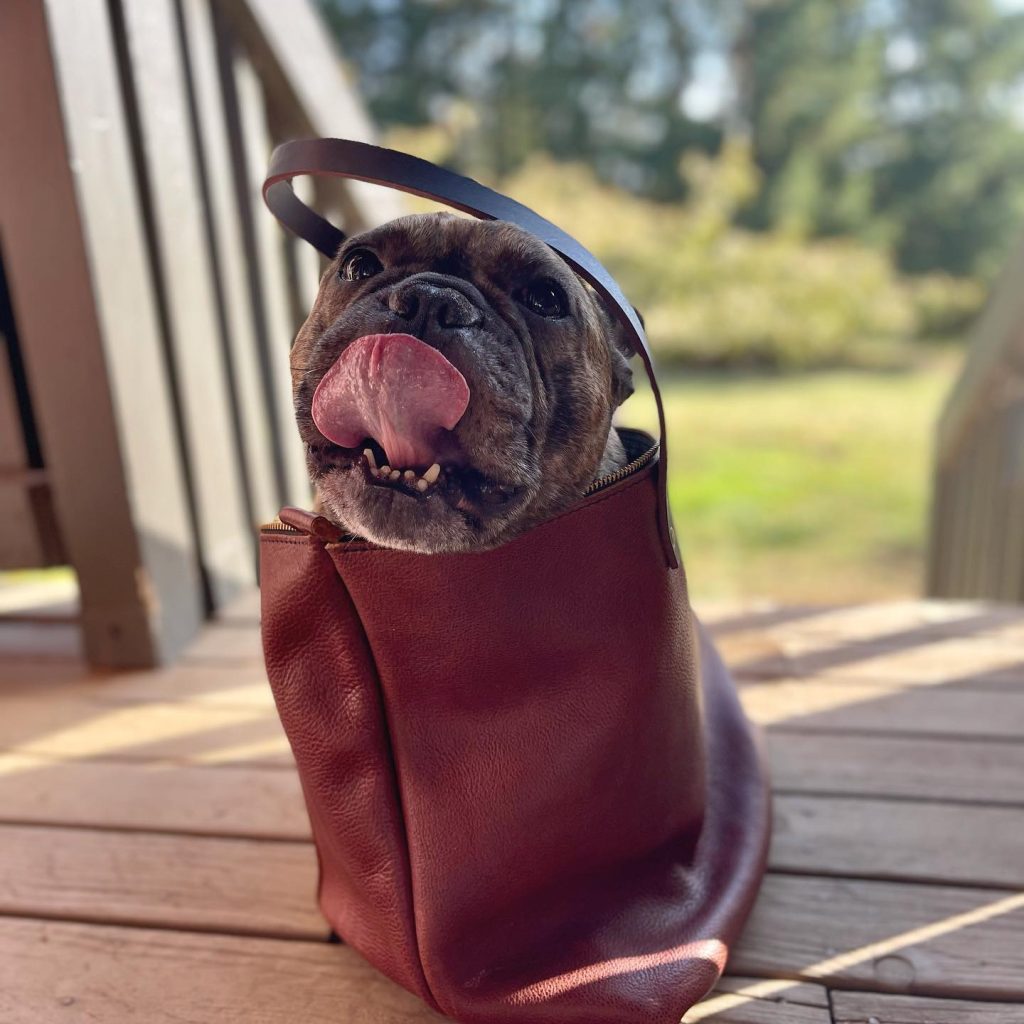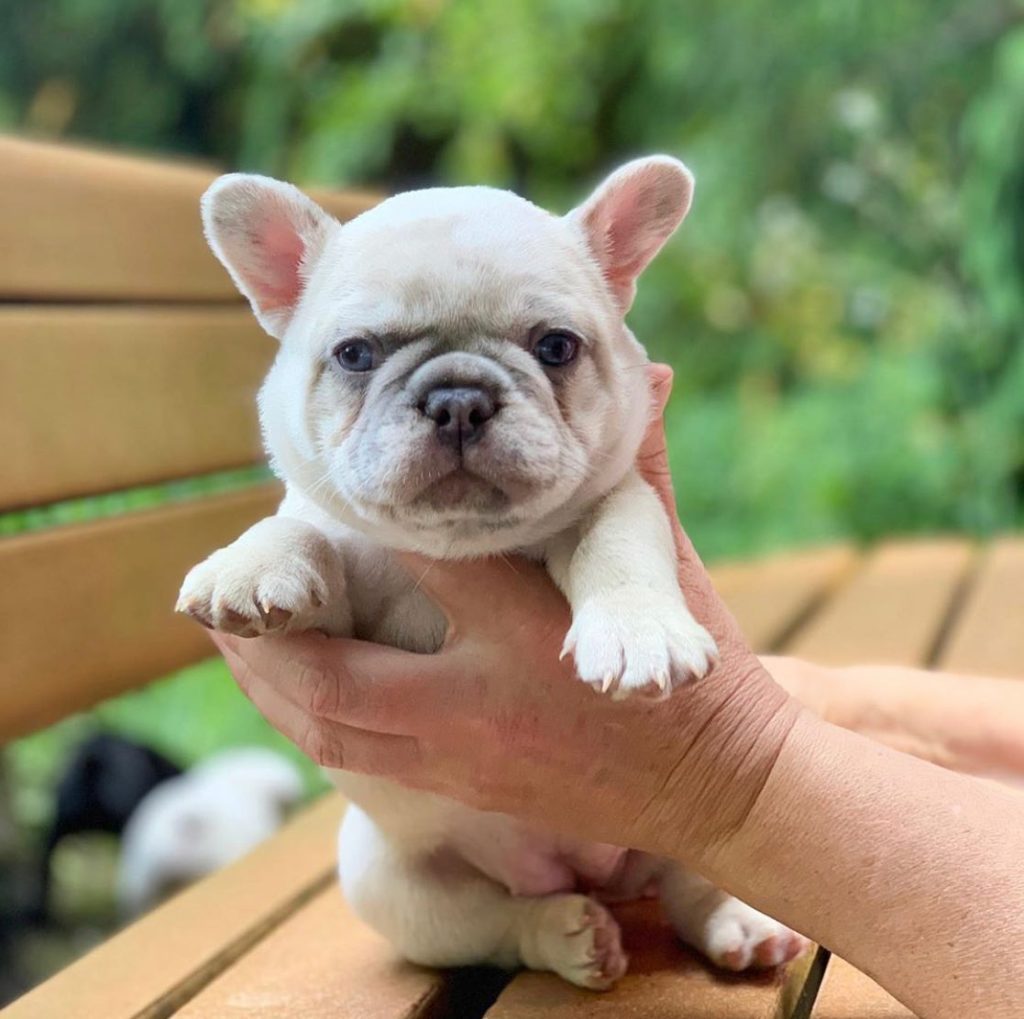
Introduction
The French Bulldog, with its distinctive bat-like ears, smushy face, and sturdy little body, has captured the hearts of dog lovers worldwide. Originally bred as companion dogs in France, these little charmers are known for their lovable, patient demeanor and adaptability to various living situations. This article aims to provide a comprehensive overview of the French Bulldog, from its history and characteristics to tips on care, training, and finding the right Frenchie for your family.
See Also: French Bulldog Training
Quick Facts About French Bulldogs
- Origin: Despite their name, French Bulldogs originated in England as miniature Bulldogs and were later taken to France by lace workers during the Industrial Revolution.
- Size: French Bulldogs are small but sturdy dogs, typically weighing under 28 pounds.
- Lifespan: The average lifespan of a French Bulldog is between 10 to 12 years.
- Personality: They are known for their affectionate nature, often forming strong bonds with their family members.
- Exercise Needs: Frenchies require moderate exercise and enjoy short walks and playtime.
- Health: They can be prone to specific health issues due to their brachycephalic (flat-faced) nature, such as breathing difficulties and overheating.
- Coat: Their coat is short, smooth, and easy to maintain, making grooming a breeze.
- Colors: They come in various colors, including brindle, fawn, white, and combinations.
Breed Overview
With their compact size and distinctive appearance, French Bulldogs have gained immense popularity worldwide. They are particularly favored in urban environments due to their relatively low exercise needs and adaptable nature.
Key Facts and Characteristics
- Size: Compact and muscular, French Bulldogs typically weigh between 16 to 28 pounds.
- Temperament: Known for their even temperament, French Bulldogs are generally well-behaved, playful, and affectionate.
- Exercise Needs: They require minimal exercise, making them perfect for apartment living or those with a busy lifestyle.
- Intelligence: French Bulldogs are intelligent and can be trained with patience and consistency.
- Socialization: Early socialization is essential for French Bulldogs to ensure they are well-adjusted and friendly.
- Noise Level: Generally quiet, French Bulldogs are not known to be excessive barkers, although they can be vocal when seeking attention or playing.
Breed Traits & Characteristics
Affectionate With Family
French Bulldogs are incredibly affectionate with their families, often seeking lap time and enjoying cuddles. Their loyalty and love for their human companions are unmatched, making them ideal pets for those who desire a close bond with their dog.
Good With Young Children
French Bulldogs are known to be gentle and patient with children, making them great family pets. Their sturdy build allows them to handle the playful antics of kids, although supervision is always recommended to ensure the safety of both the dog and the children.
Good With Other Dogs
With proper socialization, French Bulldogs can get along well with other dogs. They enjoy the company of their canine peers and can be pretty playful, making them good companions for other pets in the household.
Adaptability to Living Situations
One of the breed’s most appealing traits is its adaptability. French Bulldogs are content in both small apartments and large homes as long as they have the companionship of their owners. They can adjust to various living situations, provided their basic needs for affection, exercise, and mental stimulation are met.
Understanding French Bulldogs

Gaining a deeper understanding of French Bulldogs involves looking at the breed standards set by kennel clubs and the variety of colors and markings that make each Frenchie unique.
The Breed Standard
As outlined by significant kennel clubs, the breed standard for French Bulldogs emphasizes a compact, muscular dog with a smooth coat, sturdy bone structure, and a pug-nosed face. Key elements include:
- Head: Large and square with a flat skull, broad muzzle, and distinct ‘bat ears’ that are wide at the base and rounded at the top.
- Body: Compact with a deep chest, short back, and well-defined musculature, giving them a somewhat squat appearance.
- Tail: Naturally short, straight, or corkscrewed, but not curled over the back.
- Gait: Free, powerful, and with a slight roll highlighting their muscular build.
Breed Colors & Markings
French Bulldogs come in a wide range of colors and patterns, which include but are not limited to:
- Brindle: A dark coat interspersed with lighter-colored hairs, giving a tiger-stripe effect.
- Fawn: Varies from light tan to deep reddish tan.
- Pied: A predominantly white coat with clearly marked patches of a darker color.
- Cream: A warm, light, solid color without any trace of brindle.
- Rare Colors: Blue, chocolate, and lilac, though all kennel clubs do not recognize these due to concerns about health issues associated with these colors.
Markings can include a mask, darker fur on the face, and ticking, small, isolated areas of darker hairs on a white background. Understanding these standards and variations helps prospective owners appreciate the breed’s diversity and make informed decisions when selecting a Bulldog.
Caring for Your French Bulldog Temperament
Proper care is essential for maintaining the health and happiness of your French Bulldog. Due to their unique physical structure and personality traits, French Bulldogs require specific attention in health, nutrition, exercise, and grooming.
Health Considerations
Common Health Problems
French Bulldogs can be susceptible to a range of health issues, including:
- Brachycephalic Syndrome: Frenchies may experience breathing difficulties due to their short snouts, especially in hot or humid weather.
- Skin Conditions: Allergies and skin fold dermatitis are common due to their wrinkles.
- Eye Conditions: Including cherry eye, cataracts, and entropion.
- Hip Dysplasia: A condition where the hip joint doesn’t fit properly, leading to arthritis or discomfort.
- Intervertebral Disc Disease (IVDD): A condition affecting the spinal cord that can lead to pain, nerve damage, and even paralysis.
Recommended Health Tests From the National Breed Club
The National Breed Club recommends several health tests for French Bulldogs to screen for potential issues, including:
- Respiratory Function Grading Scheme: To assess breathing capabilities.
- Hip Evaluation: To check for signs of hip dysplasia.
- Spine X-rays: To detect IVDD or other spinal issues.
- Eye Examination: By a certified veterinary ophthalmologist to identify any hereditary eye diseases.
Nutrition and Feeding

A balanced diet is crucial for your French Bulldog’s health. High-quality dog food appropriate for their age (puppy, adult, senior) and health status can provide the necessary nutrients. Because Frenchies are prone to obesity, monitor their calorie intake and weight regularly. Treats should be given in moderation, and access to clean, fresh water should be constant.
Exercise Needs
Bulldogs need regular exercise despite their low energy levels to maintain their health and prevent obesity. Short walks and play sessions in a cool, shaded area suffice. Their exercise regimen should consider their breathing difficulties, particularly in hot or humid weather, to prevent overheating.
Adapts Well To Apartment Living
French Bulldogs are well-suited to apartment living due to their size and exercise needs. They can get much physical activity indoors, but they still appreciate (and require) daily walks outside.
Grooming Essentials
Shedding and Coat Care
French Bulldogs are moderate shedders. Regular brushing, about once a week, can help reduce shedding and keep their coat healthy. More frequent brushing might be necessary to manage the extra hair during shedding seasons.
Skin fold care is also crucial for preventing infection or irritation. Regularly cleaning and drying the folds, especially around the face, is necessary to maintain skin health. Additionally, regular nail trims, ear cleanings, and dental care are essential to a comprehensive grooming routine for French Bulldogs.
Training Your French Bulldog
Training and socializing your French Bulldog are crucial to their care, impacting their behavior, adaptability, and happiness. Frenchies are known for intelligence and can be receptive to training when approached correctly.
Training and Socialization
Introducing your French Bulldog to various people, animals, and environments early on can significantly affect their sociability and behavior. Socialization helps prevent fearfulness and aggression, making your Frenchie more adaptable and confident in different situations.
Easy To Train
Despite their sometimes stubborn nature, Bulldogs are easy to train with the proper techniques. Their desire to please their owners and enjoy treats makes positive reinforcement methods particularly effective. Using treats, praise, and play as rewards for desired behaviors encourages your Frenchie to repeat those behaviors. Consistency and patience are essential, as is starting training sessions at a young age. Short, engaging training sessions help maintain focus and interest, preventing boredom and disengagement.
Training Guidelines
When training your Bulldog, it’s essential to establish yourself as the leader in a kind and firm manner. Consistency in commands and expectations helps your Frenchie understand and follow the rules. Early training should focus on basic obedience commands such as sit, stay, come, and down, which is foundational for more advanced training and good behavior. Crate training is also beneficial for housebreaking and provides a safe space for your dog.
Behavioral Traits
Understanding the behavioral traits of French Bulldogs can significantly aid in training and living harmoniously with your pet.
Tendency To Bark Or Howl
French Bulldogs are not known to be excessive barkers but will bark to alert their owners of visitors or unusual situations. They might also express themselves through barks and howls during play or when seeking attention. Training your Frenchie to respond to a “quiet” command can help manage their vocalizations.
Dealing with High Prey Drive
While not all French Bulldogs have a strong prey drive, those that do may chase after small animals, cars, or anything that moves quickly. Training your Frenchie to come when called is crucial in managing this behavior. Additionally, keeping your Frenchie on a leash in unsecured areas and providing plenty of play and exercise can help mitigate their chasing impulses.
Living with a French Bulldog

Living with a French Bulldog offers a unique and rewarding experience. Their charming personalities and adaptability make them well-suited for various family dynamics and living situations. Understanding how they interact with families, children, and other pets and considering lifestyle factors is vital to a harmonious household.
French Bulldogs and Families
French Bulldogs thrive in a family environment. They are known for their loyalty and affection, often forming strong bonds with all family members. Their calm demeanor and sturdy build make them suitable companions for families with children.
Kid-Friendliness
French Bulldogs are renowned for their patience and affection towards children. They enjoy the energy and playfulness of kids and can be gentle playmates. It’s important to teach children how to interact safely and respectfully with dogs, such as not disturbing them while eating or sleeping and handling them gently. Supervision is always recommended when dogs and young children are together to ensure the safety.
Compatibility with Other Pets
French Bulldogs generally get along with other pets, significantly if they have been raised together or adequately socialized. Their non-aggressive nature allows them to coexist peacefully with other dogs and cats. However, individual personalities can vary, so it’s important to introduce pets slowly and in a controlled environment to ensure they can form positive relationships.
Lifestyle Considerations
When integrating a Bulldog into your life, consider how their needs align with your lifestyle, mainly if you live in an apartment or have a busy schedule.
Factors To Consider When Choosing A Dog For An Apartment
French Bulldogs dog breed are ideal for apartment living due to their size and moderate exercise needs. However, it’s essential to consider their tendency to overheat and their need for a cool, comfortable environment, especially in warmer climates. Noise sensitivity is another consideration; while Frenchies are not known to be excessive barkers, their reactions to noises in close quarters should be managed with training and socialization.
Costs of Ownership
Owning a Bulldog comes with various financial responsibilities, from the initial purchase to ongoing and unexpected costs. Being aware of these can help prospective owners prepare for the financial aspect of pet ownership.
Initial Purchase Costs
The initial cost of acquiring a French Bulldog can be significant, with prices varying widely based on lineage, location, and the breeder’s reputation. This initial investment not only covers the cost of the puppy but often includes initial veterinary care, vaccinations, and sometimes even microchipping and spaying/neutering.
Set-up and Ongoing Costs
Setting up your home for a French Bulldog involves purchasing essentials like a bed, food and water bowls, a leash, and toys. Ongoing costs include high-quality dog food, routine veterinary care, and grooming supplies. Investing in French Bulldog training tricks and dog training for French Bulldogs can also contribute to ongoing costs, ensuring your Frenchie is well-behaved and socialized.
Unexpected Costs
Due to their brachycephalic nature, unexpected costs can arise from health issues, which French Bulldogs are prone to. Training a French Bulldog and understanding how to train a stubborn French Bulldog can mitigate some behavioral issues, potentially reducing unexpected costs related to property damage or professional training interventions. Setting aside a contingency fund for unforeseen expenses is wise, ensuring your Frenchie receives the care it needs without financial strain.
Finding a French Bulldog
When welcoming a French Bulldog into your home, consider rehoming centers and reputable breeders. Rehoming centers can be an excellent option for giving a Frenchie a second chance, while breeders offer the opportunity to raise a puppy from a young age.
Rehoming Centers and Breeders
Explore local rehoming centers, as they sometimes have French Bulldogs in need of loving homes. For puppies, research breeders who prioritize health and temperament.
What to Look for in a Reputable Breeder
A reputable breeder will be knowledgeable about Frenchie dog training and the best French Bulldog puppy training aids. They should provide a healthy environment for the puppies and be willing to share Frenchie training tips and guidance on how to train a French Bulldog, ensuring a smooth transition to your home.
French Bulldog Fun Facts and Cultural Impact
French Bulldogs have significantly impacted popular culture, partly due to their unique personalities and appearances. Their charm has won over the general public and numerous celebrities.
Celebrities with French Bulldogs
- Hugh Jackman and Leonardo DiCaprio are just a few stars spotted with their beloved Frenchies, showcasing the breed’s appeal to a broad audience.
- Lady Gaga and Madonna also share their lives with French Bulldogs, cementing the breed’s status as a fashionable and sought-after companion.
Fun Facts About the Breed

- French Bulldog How to Train: Despite the common question of “Why are Frenchies so stubborn?” their intelligence and eagerness to please make training achievable with patience and the right approach.
- Are Frenchies Stubborn?: While they can exhibit a stubborn streak, this is often due to their intelligence and independent thinking rather than a lack of willingness to learn.
- Historical Role: Originally bred as companions for lace workers in England, French Bulldogs became a symbol of Parisian culture after being taken to France.
- Unique Features: Their bat-like ears and distinctive expressions have made them one of the most recognizable breeds.
French Bulldogs continue to capture hearts worldwide, not just for their adorable looks but also for their endearing personalities and rich history within human society.
Conclusion
French Bulldogs offer a unique blend of charm, affection, and personality, making them beloved companions worldwide. Whether you’re drawn to their distinctive looks, playful yet easygoing nature, or adaptability to various lifestyles, a French Bulldog can bring joy and companionship to any home.
